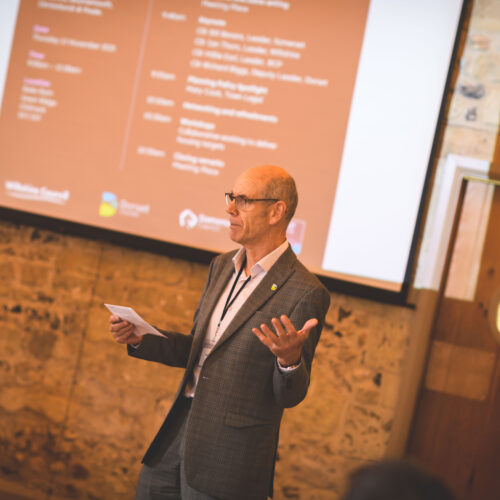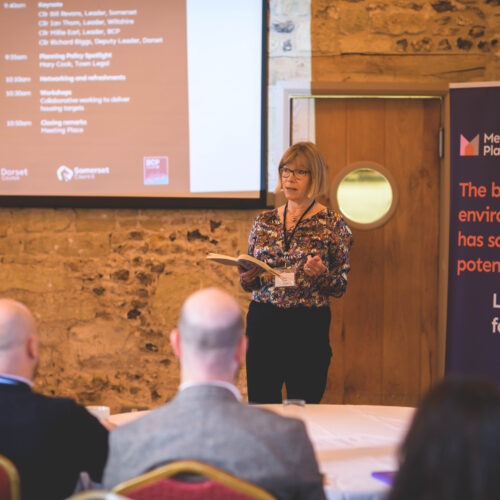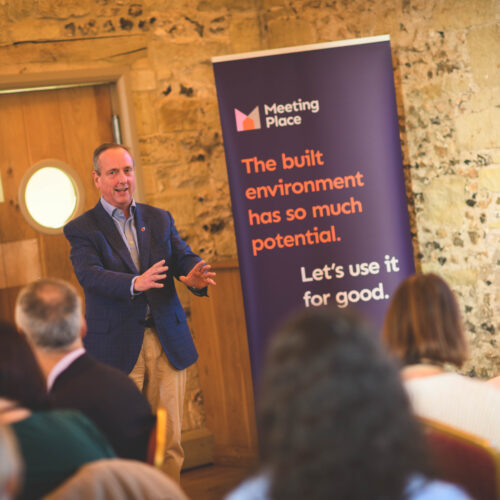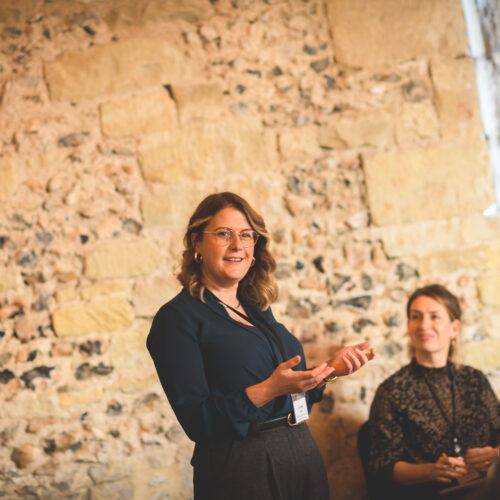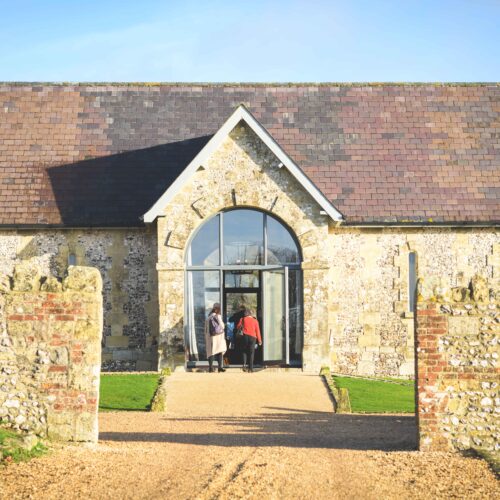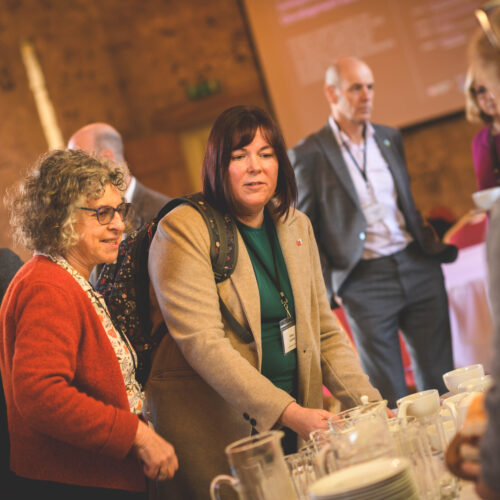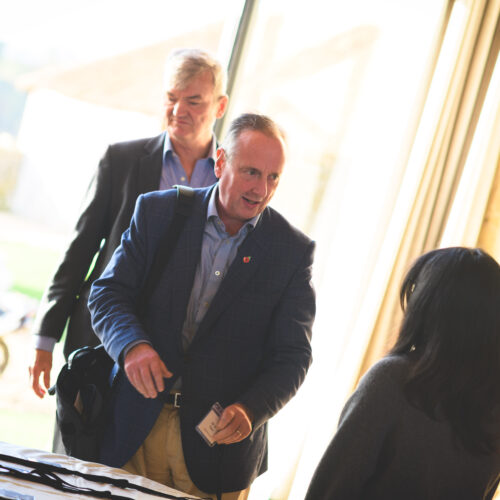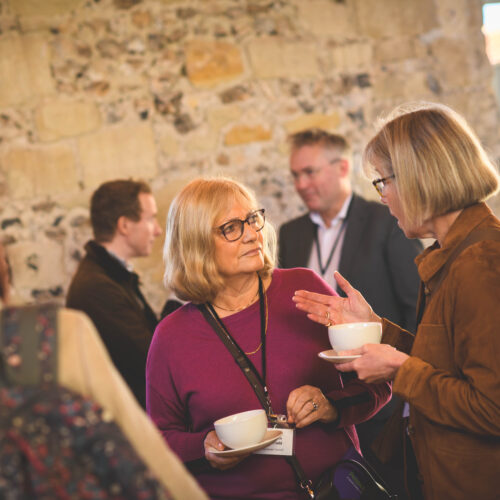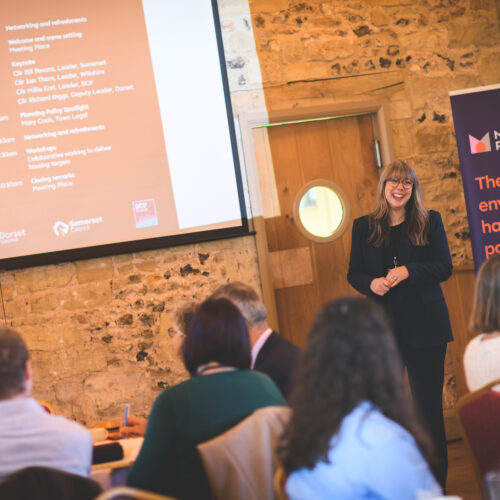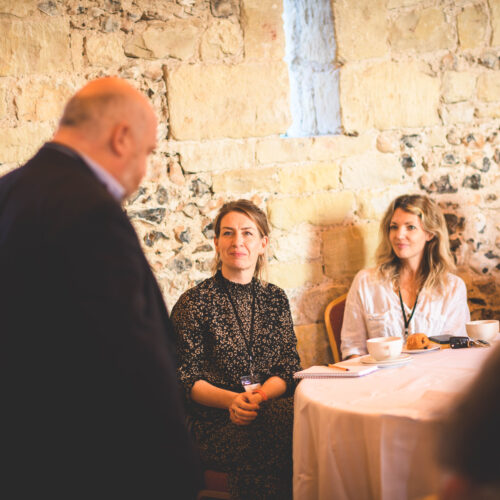Investing in Wessex: A shared vision for regional prosperity
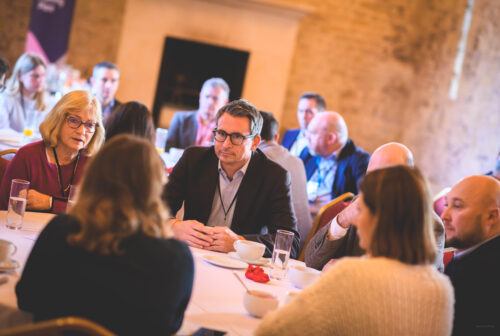
As we all marvelled at the beautiful threshing barn that would play host to our event, I couldn’t help but enjoy the symbolism at play. Just as these barns were once a place where communities came together to separate grain from chaff – turning hard work into tangible results – our event brought together leaders to refine ideas and turn regional ambitions into actionable plans.
Wessex’s devolution plans were central to the discussion, with a focus on the opportunities these new powers could unlock once in place. Leaders from the four constituent authorities shared their perspectives – each reflecting the unique needs and ambitions of their communities, yet all strikingly aligned in the overarching principles shaping their vision for the region.
Cllr Bill Revans, Leader of Somerset, highlighted his priority to attract new employment opportunities and educational institutions to the county. Cllr Millie Earl, Leader of Bournemouth, Christchurch and Poole, emphasised BCP’s role as the region’s urban engine, home to three universities and well placed to deliver higher-density growth. Cllr Richard Biggs, Deputy Leader of Dorset, welcomed well-designed development informed by the world-class settlements he represents, while stressing the importance of robust green infrastructure. Meanwhile, Cllr Ian Thorn, Leader of Wiltshire Council, called for the delivery of much-needed homes that remain sensitive to Wiltshire’s rich heritage and distinctive landscape.
We enjoyed a buoyant presentation from Mary Cook, leading Planning Barrister at Town Legal. Mary’s operational experience from across the country has shown that increased delegated powers can often prove instrumental to unlocking new development. Mayoral CIL, Mayoral Development Corporations, Development Orders and Spatial Development Strategies were all cited for their merits, where appropriate.
In addition to the usual coffee and networking we were pleased to facilitate a series of workshops, each tackling a focused issue with respect to housing delivery.
How do we tackle connectivity?
- Significant Government investment in large-scale infrastructure to unlock growth and connectivity across the region.
- A renewed commitment to public transport, including:
- The development of new train stations to improve access and regional links.
- Enhanced digital connectivity on rail and bus networks – enabling commuters to work on the move and encouraging a shift away from car use.
- Smarter parking solutions in new developments, reflecting modern car ownership patterns – for example, shared or communal parking rather than one space per household.
- The creation of “20-minute neighbourhoods”, designed to reduce car dependency by ensuring that people can live, work, and play locally through accessible walking and cycling routes.
How can we use devolution to drive efficiency, collaboration and innovation in planning and delivery?
- Define clear roles, responsibilities, and decision-making processes for the Mayor and the four authorities.
- Learn from other devolved regions to apply best practices in Wessex.
- Clarify CIL payments and assess whether they can be ringfenced for major cross-border infrastructure.
- Use AI and modern technology to speed up analysis and reporting.
- Share successes and challenges across the four planning departments.
How do we attract education institutions and employers to create vibrant, sustainable communities?
- All agree universities are essential for attracting investment and talent. BCP highlights the strong value their universities already provide. Somerset stresses its absence of a university and slow progress via University Centre Somerset.
- Working from home:
- Opportunities: stronger local communities; homes need better space for home-working.
- Challenge: town centres suffer as office-worker footfall drops.
- Response: increase town-centre housing, though viability is a barrier.
- Housing typologies:
- BCP wants fewer bungalows to support density and workforce needs.
- Somerset wants more downsizer-friendly homes to free up larger family housing.
How can we build stronger public-private collaboration to unlock sites and accelerate delivery?
The key takeaway was that collaboration was key. One of the biggest barriers to collaboration in recent years has been successive Governments tinkering with local government, but that provided everyone keeps talking, then these obstacles can be overcome.

